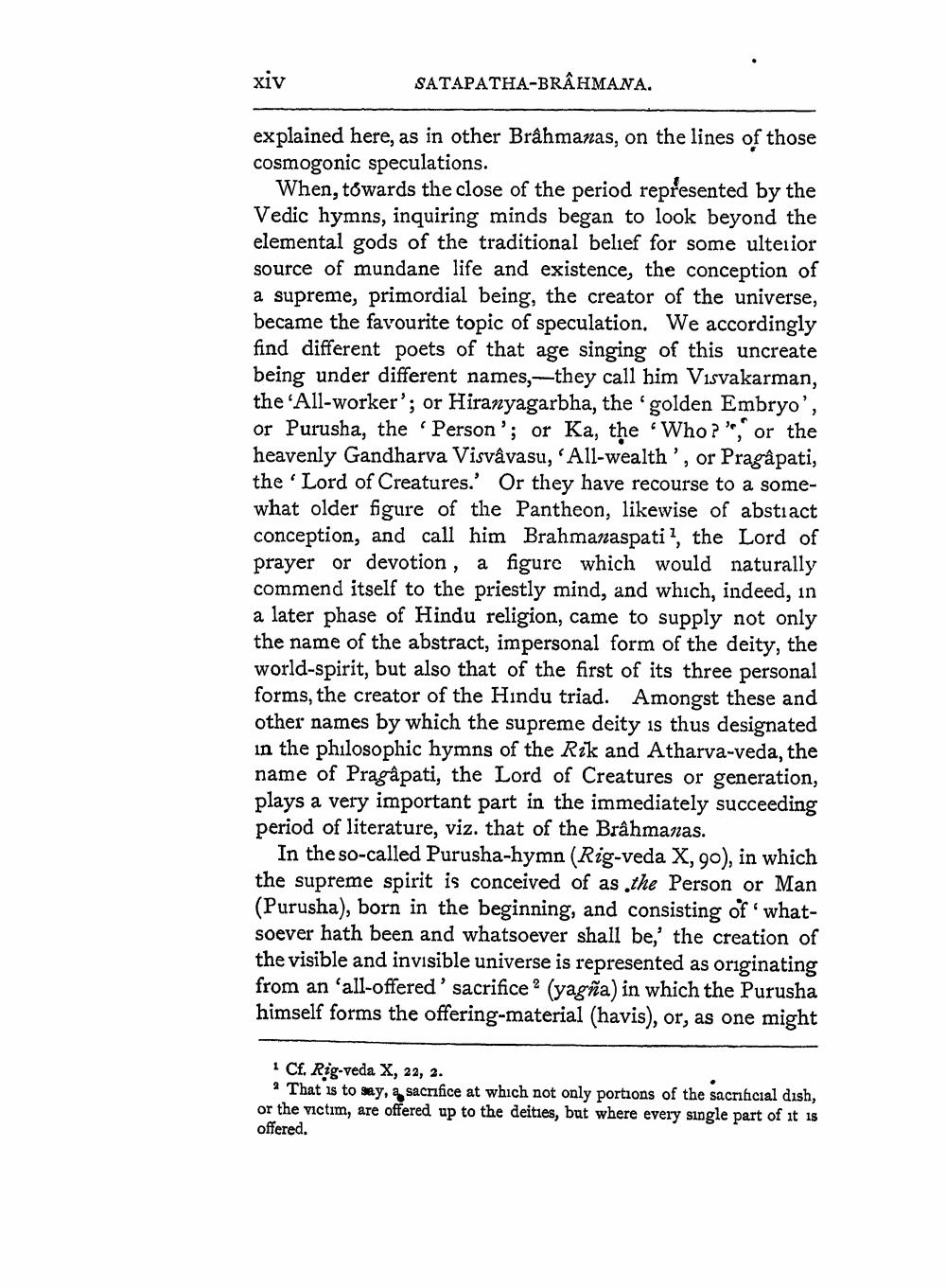________________
xiv
SATAPATHA-BRAHMANA.
explained here, as in other Brâhmanas, on the lines of those cosmogonic speculations.
When, towards the close of the period represented by the Vedic hymns, inquiring minds began to look beyond the elemental gods of the traditional belief for some ulterior source of mundane life and existence, the conception of a supreme, primordial being, the creator of the universe, became the favourite topic of speculation. We accordingly find different poets of that age singing of this uncreate being under different names,-they call him Visvakarman, the 'All-worker'; or Hiranyagarbha, the 'golden Embryo', or Purusha, the Person'; or Ka, the Who?", or the heavenly Gandharva Visvâvasu, 'All-wealth', or Pragâpati, the Lord of Creatures.' Or they have recourse to a somewhat older figure of the Pantheon, likewise of abstract conception, and call him Brahmanaspati1, the Lord of prayer or devotion, a figure which would naturally commend itself to the priestly mind, and which, indeed, in a later phase of Hindu religion, came to supply not only the name of the abstract, impersonal form of the deity, the world-spirit, but also that of the first of its three personal forms, the creator of the Hindu triad. Amongst these and other names by which the supreme deity is thus designated in the philosophic hymns of the Rik and Atharva-veda, the name of Pragâpati, the Lord of Creatures or generation, plays a very important part in the immediately succeeding period of literature, viz. that of the Brahmanas.
In the so-called Purusha-hymn (Rig-veda X, 90), in which the supreme spirit is conceived of as the Person or Man (Purusha), born in the beginning, and consisting of 'whatsoever hath been and whatsoever shall be,' the creation of the visible and invisible universe is represented as originating from an 'all-offered' sacrifice (yagña) in which the Purusha himself forms the offering-material (havis), or, as one might
1 Cf. Rig-veda X, 22, 2.
2 That is to say, a sacrifice at which not only portions of the sacrificial dish, or the victim, are offered up to the deities, but where every single part of it is offered.




